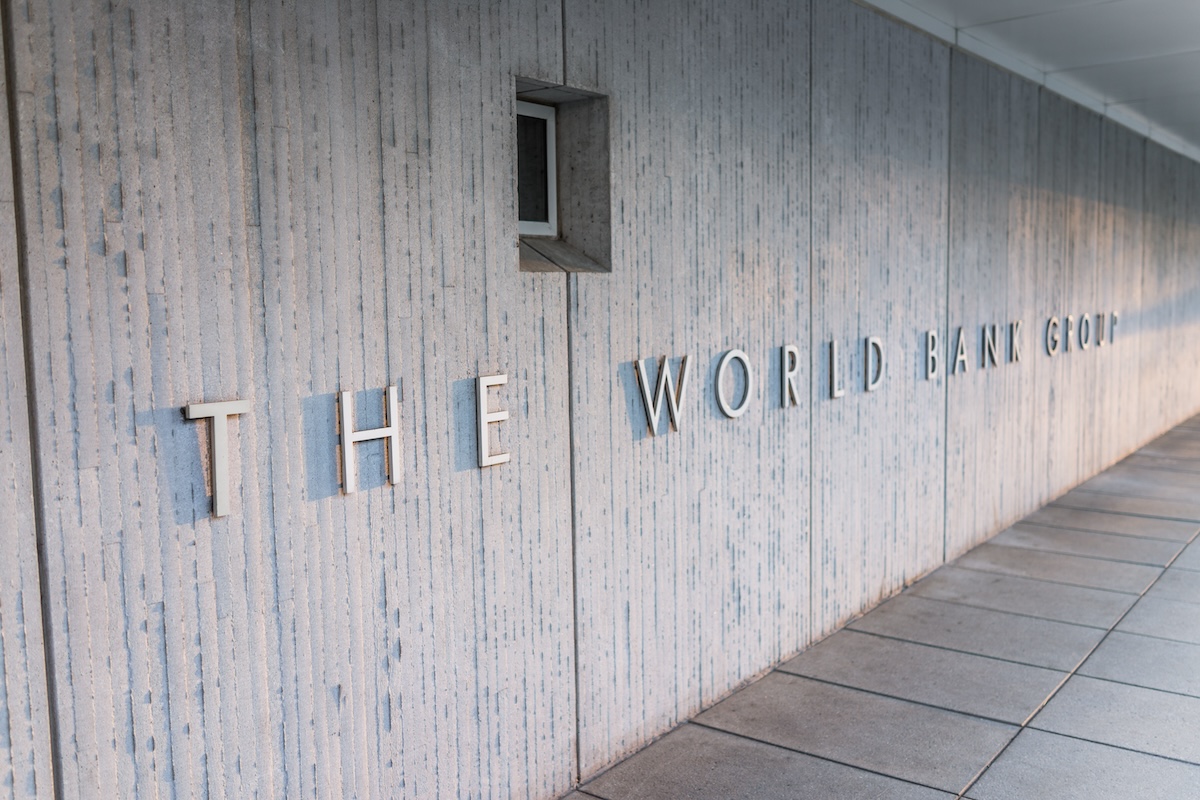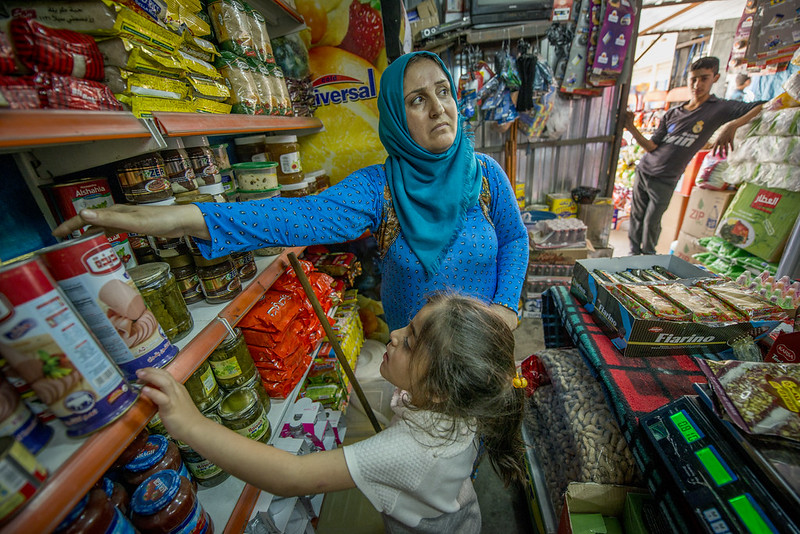The Center for Strategic and International Studies (CSIS) hosted a debate last Friday with the provocative title “Resolved: That the US commitment to universal HIV/AIDS treatment is unsustainable and decreases US leverage in the nations’ foreign policy.” (Note: This resolution which you will hear debated is edgier and has more foreign policy content than the one you will see when you click on the above link.) Moderated by Susan Dentzer, the Editor-in-Chief of Health Affairs, the debate featured Ambassador Princeton Lyman, of the Council on Foreign Relations, for the affirmative position and Todd Summers, formerly of the Bill & Melinda Gates Foundation and now at ONE, for the negative. Stephen Morrison, Director of CSIS’ Global Health Policy Center, hosted the event and added comments to the discussion.First, I congratulate the CSIS on the inauguration of their own debate series in global health. Recently pioneered in the HIV/AIDS arena by the World Bank and USAID, the debate format offers an opportunity for unpopular ideas to receive a fair hearing – and a fair rebuttal. And bravo for posting the entire video of the debate online. While the 83 minute webcast may seem a bit daunting to those not deeply embedded in AIDS issues, the format allows the viewer to hear both debaters present their views succinctly in less than ten minutes each. Both presenters do their positions credit, with clear, evidence-based statements. Each presenter had the opportunity to ask two questions of the other, which also proves enlightening, as both parties answer those pointed questions forthrightly, without the evasion one usually sees when politicians debate. Such debates do the rest of us an important service and should become the standard practice, rather than the exception, in the foreign policy arena. Whether or not they bring any closer those with strongly entrenched positions, they should allow those with fewer vested interests an opportunity to make an informed judgment on the issues.Jumping off from his Foreign Affairs article with Stephen Wittels entitled, “No Good Deed Goes Unpunished: The Unintended Consequences of Washington’s HIV/AIDS Programs,” (gated) which I blogged here, Princeton pushes farther, arguing that universal access to treatment is no longer a plausible U.S. or global policy objective, partly because it is not sustainable and partly because the entitlements it grants to recipient governments and their citizens cannot ethically be used to leverage policy changes and will gradually create more resentment than gratitude among recipients. Perhaps even more persuasively than in his article, Princeton made the case that individual donors like the U.S. should fund entitlements to life-critical AIDS treatment through an intermediary international agency like the Global Fund for AIDS, TB and Malaria, rather than directly. By funding these dependency relationships through an international agency, he argued, bilateral aid could more clearly and transparently serve US foreign policy ends, because it could be used to obtain leverage over the recipient’s foreign policy. (Some development advocates would take issue with Princeton’s wiliness to use non-humanitarian development assistance as policy leverage, arguing that the resulting unpredictability of development assistance dramatically weakens its effectiveness in achieving its development objectives.)In addition to the disadvantage of being assigned the negative position in this debate, Todd Summers also had to overcome what to me seemed a bias in favor of the affirmative position in Susan Dentzler’s opening remarks. But Todd overcame these disadvantages to speak eloquently in support of a renewed commitment to universal treatment access, while relating past benefits to U.S. foreign policy in pursuit of this goal. Furthermore, except for one young questioner who seemed to ask (and I paraphrase) “what in the world possessed world leaders in 2005 to commit to such an unattainable and perpetually receding goal as universal access,” the audience seemed to be entirely on Todd’s side.In favor of a renewed commitment to universal access, Todd argued that great strides can be made toward expanding treatment at no additional cost by squeezing the fat out of U.S. AIDS treatment spending. He continued that AIDS treatment has multiple beneficial spillover effects, including its suppression of AIDS transmission, and that as long as hundreds of billions are being spent on other U.S. and global objectives, resources for AIDS treatment are not really scarce.In support of Todd’s argument that U.S. spending on AIDS treatment has strengthened U.S. leverage over donor policies, one audience member made the interesting claim that the U.S. state department was able to use its PEPFAR program in Uganda as leverage in order to persuade the Ugandan government to oppose the nascent movement within its own parliament toward the criminalization of homosexual behavior. I have heard a rumor to the contrary, that the State Department intentionally and deliberately omitted mention of PEPFAR when it discretely approached the Ugandan government to express its views opposing the criminalization policy. Of course, both might be true. Even if the State Department avoided any overt mention of PEPFER during private face-to-face discussions of the human rights implications of the offensive parliamentary initiative, surely the Ugandan participants in that discussion were acutely aware of PEPFAR – and of the potential that U.S. disillusionment with Ugandan human rights policies might lead to diminished U.S. political and diplomatic support for its continued expansion in their country. If this is correct, does it suggest Princeton is wrong to be concerned that humanitarian assistance is unavailable for policy leverage? And which would we prefer: that treatment entitlements remain bilateral so that they are available in extremis for policy leverage (perhaps, only to oppose human rights abuses) or that they be shifted to appropriately strengthened international agencies where they could not easily be so used? What do you readers think about this one?Another audience member, Matthew Cavanaugh of the Global Access Project, made what I considered to be the most constructive suggestion in the entire session. He proposed that rather than take a position a priori on universal access, donors should make full use of the promising new information on HIV prevention (e.g. my blog from the Vienna conference) and of the cost-saving, efficiency enhancing initiatives for AIDS treatment Todd had described to construct a plan for “winning” against HIV/AIDS. I agree wholeheartedly with this positive approach to AIDS policy as an alternative to the passive and implicit approach being followed by the current administration of slowly rebalancing resources away from AIDS treatment without enunciating a specific plan for “winning.”Of course if Matt Cavanaugh shares the views of Brook Baker, the chair of the board of the Global Access Project, he will not agree with my view of how such a plan should be formulated. (Brook expressed his dissent here and I responded here.) I believe that the problems we have today with funding continued AIDS treatment expansion are due to AIDS policy having put the cart of AIDS treatment before the horse of HIV prevention, a situation that should be reversed. In advancing the concept of the “AIDS transition” as the proximate U.S. objective, I am proposing that evidence-based reduction in the flow of new HIV infections be the “horse” that pulls forward the “cart” of AIDS treatment expansion, and that the cart not advance faster than the horse can pull it. Furthermore, I believe that the passengers in the “cart,” the large global community of those who support expanded access to AIDS treatment, should apply the incentives, the “carrot” dangled before the horse’s nose, to accelerate as fast as that horse can possibly run. But no faster.I see the the AIDS transition as a plan to win against this devastating epidemic. Getting to the AIDS transition, the milestone after which the number of people living with HIV/AIDS begins to decline, does not itself constitute a “win.” But it’s an inevitable stepping stone to that objective, which if explicitly sought, will help all of us, AIDS treatment supporters and tax payers alike, to plan reasonably and confidently for the end of both the depradation and the burden of this scourge.
Disclaimer
CGD blog posts reflect the views of the authors, drawing on prior research and experience in their areas of expertise. CGD is a nonpartisan, independent organization and does not take institutional positions.





